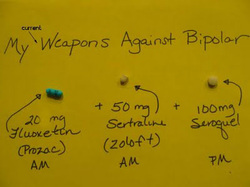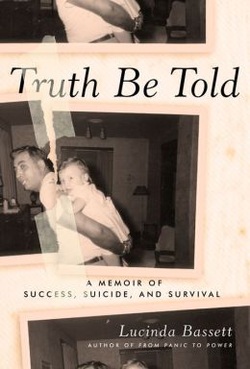So I've been gone for the past 4 months. Im sorry about that. Apart from tackling a very active bipolar brain, I also suffer from scoliosis. I went for surgery, to correct a 50 degree curve in my spine. What was life like before my surgery? Hard. To be in constant pain just because your not sitting correctly on a chair or a sofa, or to stand weird to suit the nature of your curve to avoid pain. What was my current status shortly after I found out about having surgery? Agitated depression. I couldnt hold the thought of being cut open down half the length of my back and singing "I am titanium" for the rest of my life. At this point, I was scared for my recovery, physically and mentally. I had never experienced intense racing thoughts for as long as 2 months. I was prepping myself for July to undergo surgery. For the first time I went to an appointment with my mum to see my psychiatrist and it was then we informed her and my care co-ordinator about the surgery I was about to have.

So I'm sitting in the 4 walls of the theory room in college. Silence. Peaceful. A bit too peaceful. The bipolar wave has attacked me, and I'm drowning in a sea of depression. So, people tend to ask: "Are you okay?" Well...
Today is a bad day. Really bad. DOnt get me wrong I do have bad days some days, but there's something about today. Life hurts. Despite being one of those fast running bipolar people, I have done and achieved something rather specatular, I survived and kept of going. And I will keep on going, there really isnt any time to stop. Although the pressure of fast thoughts isnt trying to penetrate my skull in a bid for freedom, the visuals and slowness of my lobes are visually evident on my face. You can't see the tears, but they are there, on standby.

After much deliberation over the past 3 days, today’s post will be one of the best posts I’ve written to date, and the reason is simple. The soon-to-be bestselling book Truth Be Told by Lucinda Bassett, has been told.
It’s amazing how a mother can just sit down, and share a story, a story you hardly ever hear from anyone because of how personal the subject is. In her book she describes the pain, heartbreak and desperation she felt to help the man she loves unconditionally, and she explains how so much effort into making something right, can hurt.
Lucinda’s story explains how the professionals within the medical community had tried so desperately to provide David the diagnosis he needed to get through his turmoil, but even they could not stop what had turned out to be inevitable. The death of her husband David didn’t just change her life, it changed the lives of her children who coped with their father’s death in a much different way as she says herself: “My kids have decided to ignore it or disown it, all in an attempt to forget it. Right.” This left her no one to share the grieving process with. Also Lucinda says: “When I called my daughter to remind her what day it was, she broke into tears, got angry with me, and said, “Don’t ever bring it up again.” As you can see, suicide is heavy subject to discuss, but at some point it has to be discussed.
It has been discussed in the book how Lucinda began to accept recent events, and the first thing she did in order to move on with life was to leave the grief behind, and find a way back to life she left, and offer her services to help others. “I believe, as demonstrated to me universally and by divine intervention, I am supposed to share what I have learned with others.”
And because of this incredible woman’s story to the world, “Truth Be Told: A Memoir of Success, Suicide and Survival” will be a best seller and will touch and open our hearts to those who have been exposed to despair and pain. Watch out, this book will take international hearts by storm.
The emotional pressure, temptation to spend too much, drink too much, other peoples’ expectations of us (or our distorted perceptions of them) is upon us- the list of triggers and stressors just go on and on. Welcome to the Christmas Holdiays. One of the worst times for a bipolar person to be dealing with right now.
This is the holiday us bipolars dread the most and thats because the mood shifts challenge the struggle to stay sane. It’s holiday time, and this is my guide on how you can stay focused and not end up being sectioned by New Years Eve.
The hardest part of depression is finding a way to tell people. It is like you are hiding a terrible secret. I think I felt ashamed of myself for getting depressed, like somehow I had failed. That’s what depression does to you: it makes you feel like a terrible failure and worthless. There are still those quite close to me who don’t know or i've told but werent willing to listen that I’ve suffered from crippling depression. I remember that people didn’t know what to say in response, because I am usually the most hyped person in college with a long stretch of friends and no social problems. What happens when mania starts slipping from my grasp? The complete opposite. Welcome to Depression.

 RSS Feed
RSS Feed